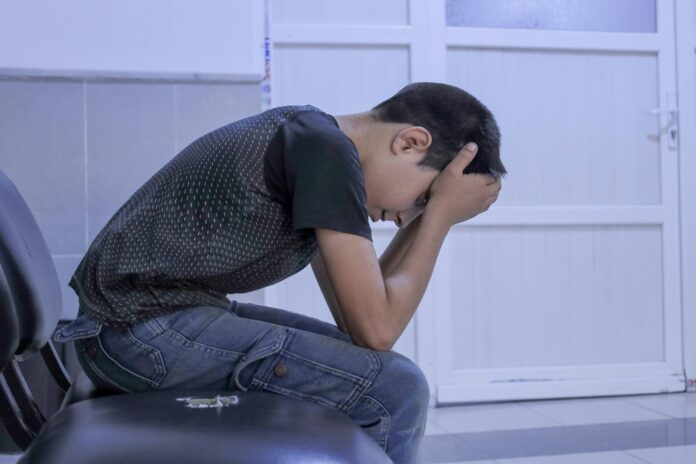Challenges in children’s and teenagers’ mental health are becoming more and more obvious as major public health concerns. Early intervention is crucial for anxiety, depression, ADHD, and trauma-related disorders. Many communities today provide a variety of local tools to help kids’ mental and emotional well-being. This manual offers a thorough examination of these tools and explains how families might use them.
1 Educational institutions and schools:
Identification and resolution of mental health problems depend most on schools, which are front-line workers. Children often spend most of their day in an environment where emotional or behavioral difficulties first show themselves.
Resources offered:
- Social workers and School counselors: They connect families to outside resources and aid in crisis response and work directly with students to address issues.
- On-site school psychologists: Specially trained to apply psychological evaluations and create programs for children with learning disabilities, behavioral problems, and mental health issues. You can find psychologists by searching “child psychologists near me”.
- Multi-Tiered Systems of Support (MTSS): Multi-Tiered Systems of Support (MTSS) is a framework several districts use to give progressively higher levels of assistance depending on a student’s needs.
- PTAs: Many parent-teacher associations (PTAs) today include parent education programs and mental health awareness campaigns.
Access instructions:
Reach the school office or guidance department to inquire about any mental health resources. Go to parent conferences or school board meetings where mental health programs are under debate.
- Community Mental Health Centres:
Especially for underinsured or low-income families, community mental health centers are a necessary resource, usually supported by county or state health agencies.
Services:
- In-home and outpatient services
- Programs for Trauma-Informed Care
- Wraparound services encompass coordination with social services for difficult cases, schools, and courts.
Services are sometimes provided on a sliding scale.
Some centers offer bilingual therapists or culturally aware ones.
- Private clinics and practices:
Typically, with shorter wait times and particular knowledge, private doctors provide individualized care.
Common specialities:
- Child psychiatrists: Child psychiatrists may prescribe and manage medicines.
- Licensed Clinical Social Workers (LCSWs): Licensed clinical social workers (LCSWs) and marriage and family therapists (MFTs) help with family dynamics through therapy and support.
- Neuropsychologists: Assess autism spectrum disorders, ADHD, and learning discrepancies. Many best psychologists in Lahore, Islamabad, and in every city of Pakistan, are trained to assist you.
How to pick a provider:
Utilize directories such as Psychology Today, Therapy for Black Girls, or Inclusive Therapists.
Review client comments, insurance acceptance, and credential checks.
- Charities and nonprofit organizations:
Numerous local and national nonprofits are heavily engaged in advocacy of children’s mental health and direct services.
Services:
- For youngsters dealing with anxiety, mourning, or bullying incidents, free support groups.
- Workshops for Teachers and Parents.
- Particularly in rural or underprivileged regions, mobile therapy units
- Programs aiming to empower youngsters to be mental health ambassadors.
Notable organizations:
- NAMI (National Alliance on Mental Illness).
- The Trevor Project: Emphasis on LGBTQ+ young people.
- Children’s Health Council.
- Big Brothers Big Sisters offers emotional support as well as guidance.
- Family Doctors and Pediatricians:
Often, a family’s first stop when issues come up is primary care providers.
Services:
- Especially for ages 4 to 18, well-child appointments include behavioral screenings.
- Developmental Milestone Checks.
- Referrals to Therapists or Child Psychiatrists.
- Care Follow-Up and Medication Monitoring.
Ask your pediatrician about nearby mental health partners or whether their office has a behavioral health expert on site.
- Hotlines, Helplines, and Crisis-Response Services:
Hotlines provide quick direction, emotional support, and crisis intervention for urgent assistance.
Resources:
- Call 988 for round-the-clock assistance.
- Crisis Text Line: 741741, texts HOME for free, private help.
- For at-risk youngsters, contact National Runaway Safeline: 1-800-RUNAWAY.
- Local mobile crisis teams: sent to schools or houses during mental health crises.
- Faith-Based and Cultural Organizations:
Mental health help that matches their cultural or spiritual beliefs is particularly important to many households.
Services:
- Counseling Services Based on Faith.
- Pastoral Counseling Support Groups.
- Bilingual or Bicultural Therapists.
For families looking for help, these services typically provide a more familiar and trusting atmosphere.
- Libraries, community centres, and parks:
Especially for prevention and well-being, free mental health programs abound in public places.
Services:
- Programs open to children are Yoga and Mindfulness Classes.
- Workshop on Arts Therapy.
- Storytime Emotions and Empathy Attention.
- Youth Mentorship and After-School Programs Look through your local library’s events calendar or your city’s parks and recreation department for forthcoming chances.
Suggestions for families:
- Promote your child to discuss their emotions.
- Early support is more efficient; don’t wait for a catastrophe.
- Document changes in sleep, academic performance, and behavior to discuss with experts.
- Be Persistent. If wait lists are lengthy, look into temporary options including group therapy, parent coaching, or online therapy services.
Final considerations:
Every child should have reasonable access to effective, timely, and compassionate mental health treatment. Local resources can offer a lifeline for youngsters in need via schools, healthcare professionals, community initiatives, or faith-based organizations. Communities must keep collaborating to guarantee that all families have easy access to mental health support as knowledge grows.
For more info Read



















